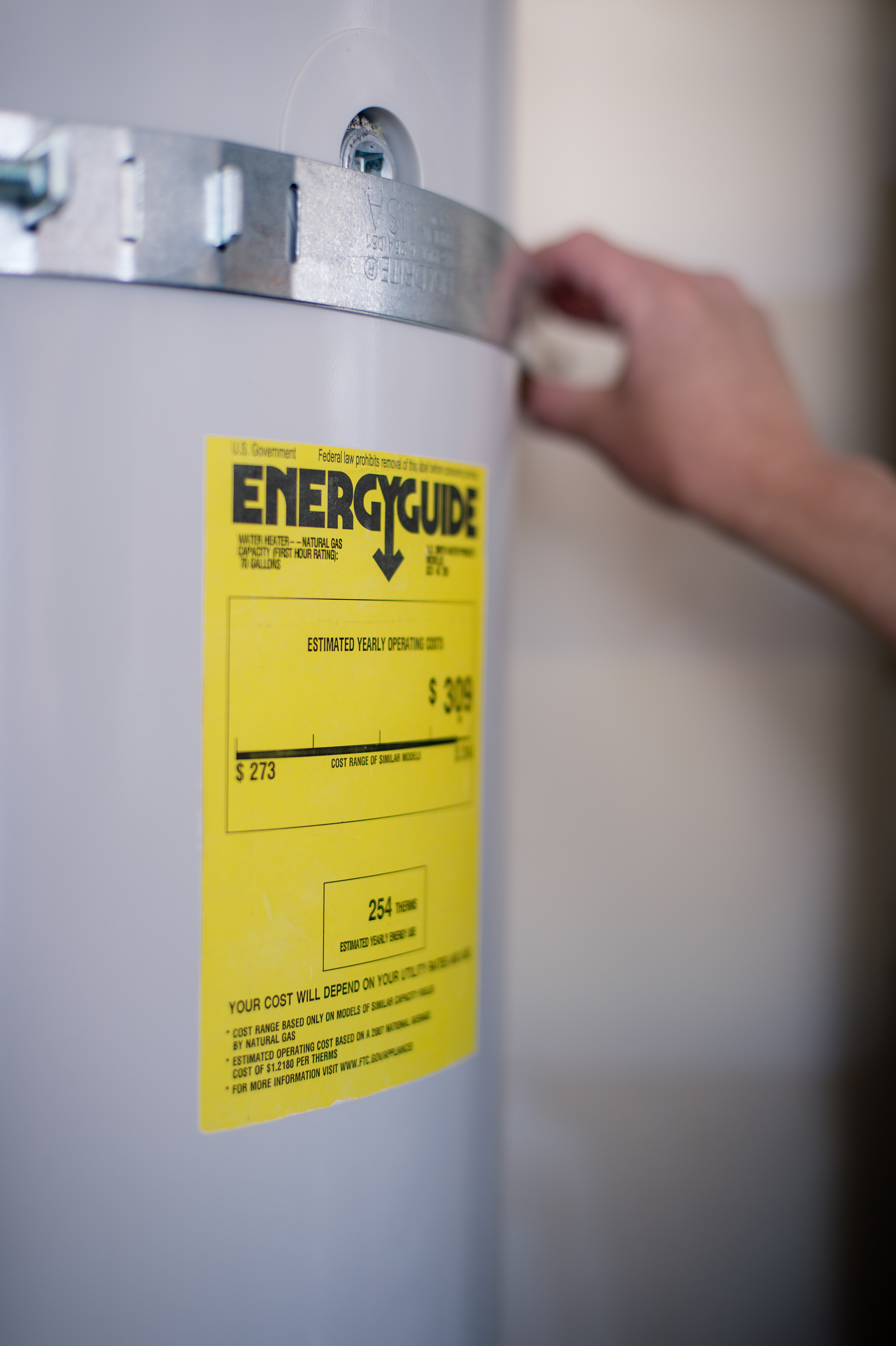Tried the tips but still looking for more ways to save? We can perform a Home Energy Tune Up.
Like a car, your home needs to be running efficiently to save you money. Is your home running as efficiently as it can? Does it need a tune-up? For a fee, Benton PUD's energy experts can examine the high energy users in your home and give you advice on how to adjust your energy lifestyle.
(509) 582-1234
Step 1 - Inspection of windows and doors to find energy leaks
Windows easily let air in and out and can contribute to 10-30% of the heating and air conditioning bill. Replacing all of the windows in your home can be expensive and the payback period could be 20 to 30 years based on energy savings alone; however, energy efficient windows will add to comfort and can increase the value of your home. We will inspect your windows and doors and advise you on the energy factor to look for when purchasing.
Step 2 - Review heating/cooling system, duct work, and insulation levels
Heating and cooling can account for up to 70% of your electric bill. Upgrading your heating and cooling system, adding insulation, and minimizing air infiltration can have a dramatic effect on lowering the money you spend on heating and cooling. During the tune up, we will inspect your heating and cooling system, ductwork, insulation levels, and do a special diagnostic test to find the energy leaks in your home.
Step 3 - A check of major appliances
Appliances can account for up to 20% of your bill. Like a car's fuel is gasoline , your home's fuel is electricity. You will get higher "electricity mileage" if the appliances in your home are operating efficiently. Our tune up includes a thorough inspection of the large appliances in your home. We will give you advice on how to conserve the energy that the appliances use and what to look for when purchasing new appliances. Water heating typically accounts for 15% to 20% of your bill. Although most water heaters last 10 to 15 years, an old water heater can operate for years at a very low efficiency; it's best to start shopping for a new one before your old one fails.
Step 4 - Tips on energy lifestyle and practical advice
The Home Energy Tune Up includes tips on how to adapt efficient energy use into your every day routine.
An easy to follow Do-It-Yourself Energy Audit
Follow these steps to make your home more energy efficient.
- Clean condenser coils on the refrigerator. Dirty coils make it use more energy. Maintain the recommended setting in your refrigerator and freezer. Settings between 38°F and 42°F in the refrigerator and 0°F and 5°F in the freezer are sufficient to keep your food cold and safe.
- Check the dishwasher owner’s manual for recommendations on the water temperature. Your dishwasher may have internal heating elements that allow you to set the water heater at a lower temperature.
- Replace old showerheads with energy efficient ones to reduce hot water use. You’ll hardly notice a difference in water pressure, but you’ll reduce the water you have to heat.
- Repair leaky water faucets.
- Check the water heater temperature. Set the temperature at 120 degrees.
- Seal and caulk around windows, doors, electrical outlets, and plumbing fixtures.
- Apply weather stripping around doors.
- Install common draft guards beneath the doors.
- Clean or replace furnace filters. Check manufacturer’s maintenance instructions for service recommendations. Heat pumps should be serviced annually or as noted by the manufacturer.
- Clean the registers. Make sure nothing is blocking the air flow.
- Close the vents to the crawlspace of your home to prevent cool air from penetrating under your house.
- Check your duct work for leaks and sections that may have separated. Secure the connections with mechanical fasteners such as sheet metal screws. Seal the joints with duct mastic.
- Install foam gaskets behind outlet and switch plates on exterior walls.
- If you use a fireplace, installing tempered glass doors and a heat-air exchange system will blow warmed air back into the room. Close the damper when not in use. As much as 14% of your warm air escapes out a chimney.
- Look for dirty spots in your insulation, which indicate air leaks in and out of your house. Seal the holes by stapling sheets of plastic over the holes and caulking the edges of the plastic.
- Install LED light bulbs throughout the house. Don’t forget the garage.
- Turn off lights and electronics when not in use. Encourage others to do the same.
- Unplug chargers when not in use.
- When shopping for a new appliance or electronic device, look for the ENERGY STAR® logo.
- If you have an old refrigerator in the garage that isn’t getting much use, get rid of it or replace it with an energy efficient one.
- Check with Benton PUD for rebates on home improvements such as windows, insulation, heat pump, or duct sealing project.

Find useful tips you can implement at home to save energy and save money.

Additional ways to save on your power bill include installing more efficient equipment in your residence. Learn more about available rebates and if equipment you are researching or recently purchased qualifies.
.png?lang=en-US)
